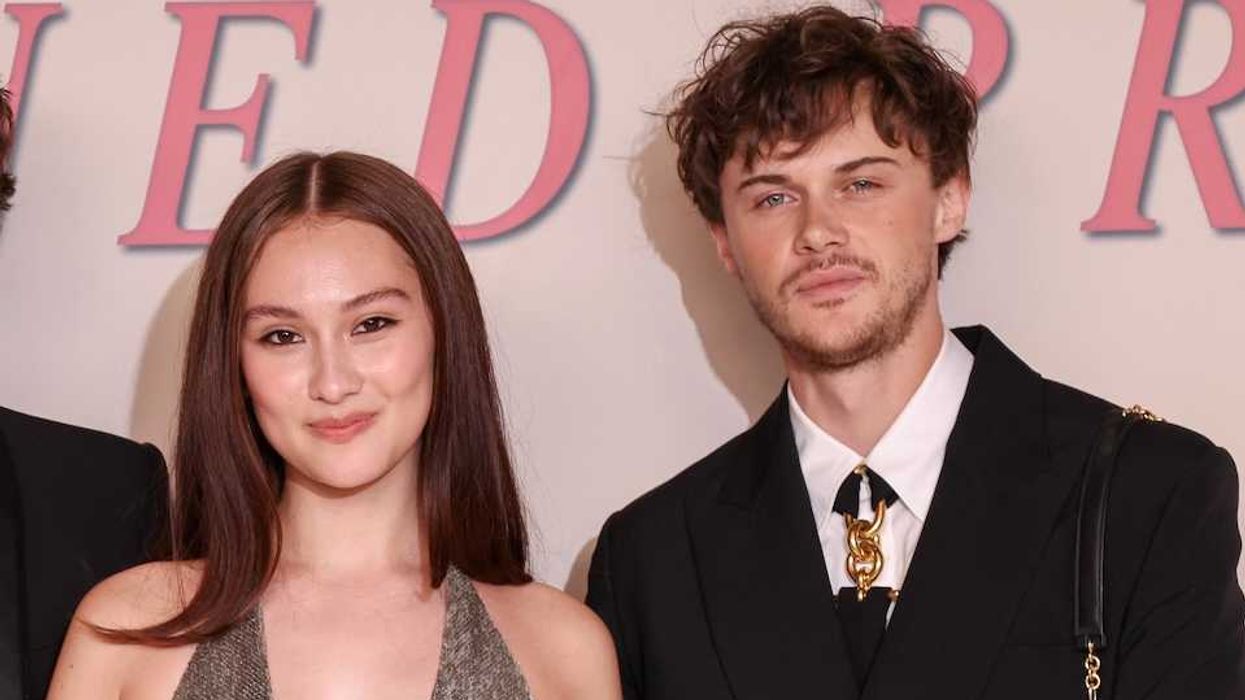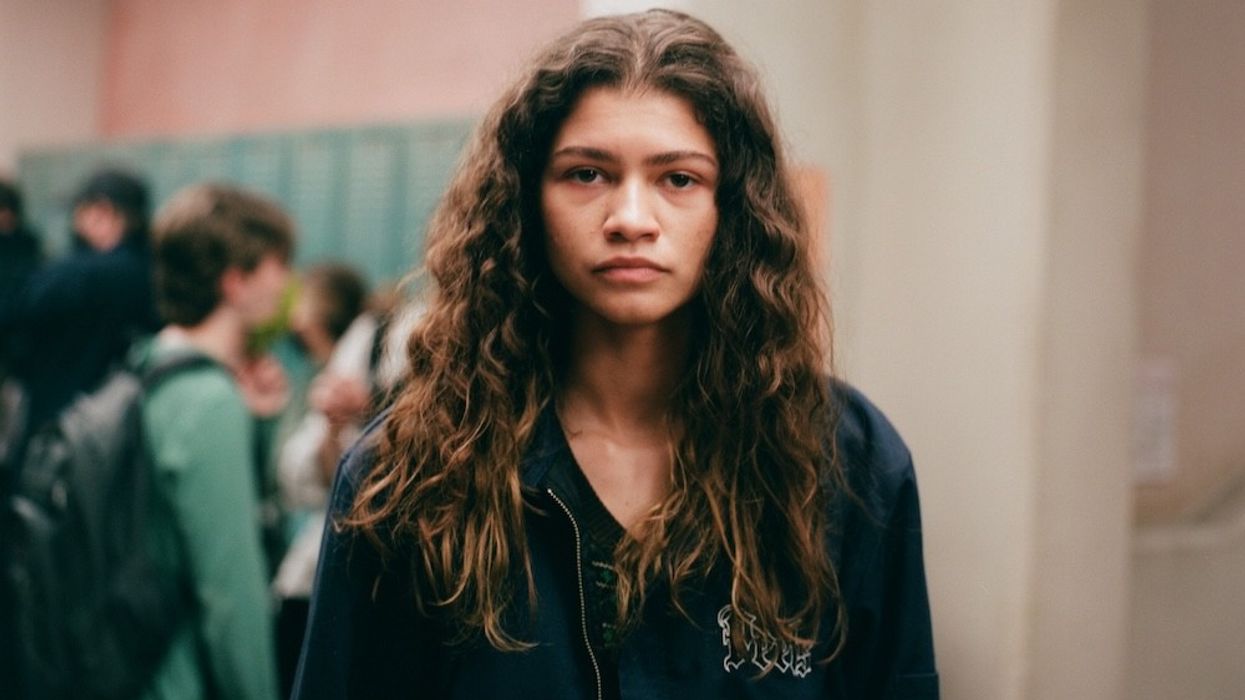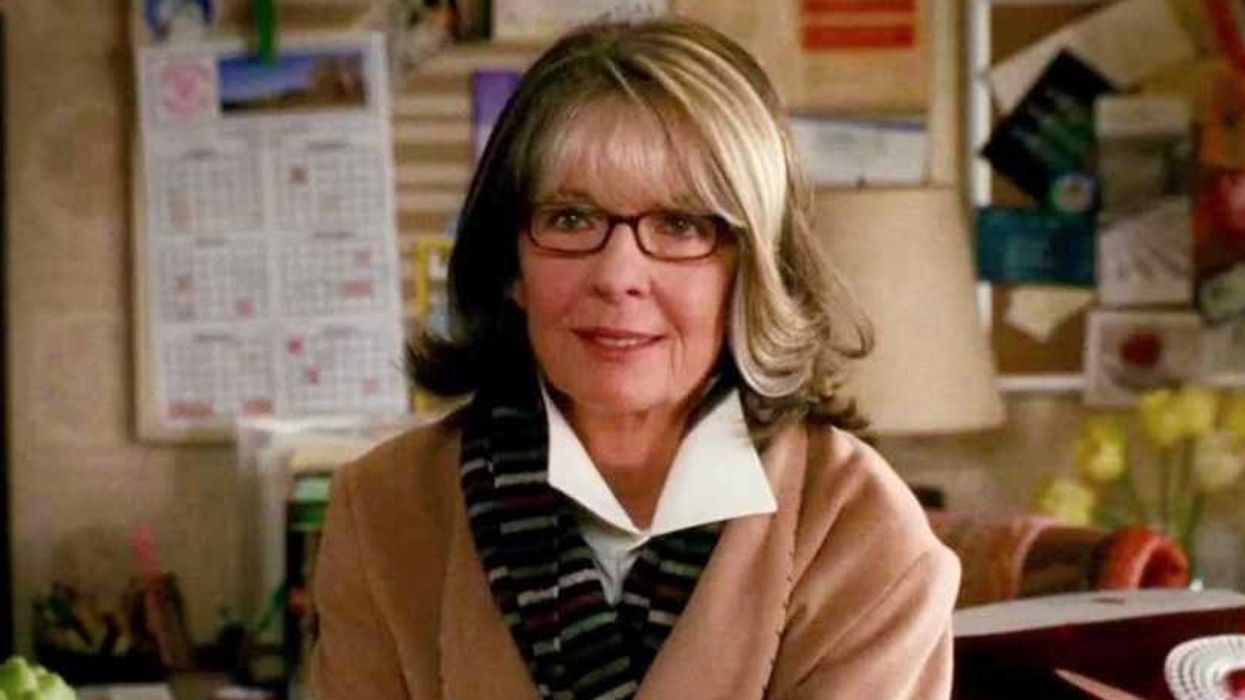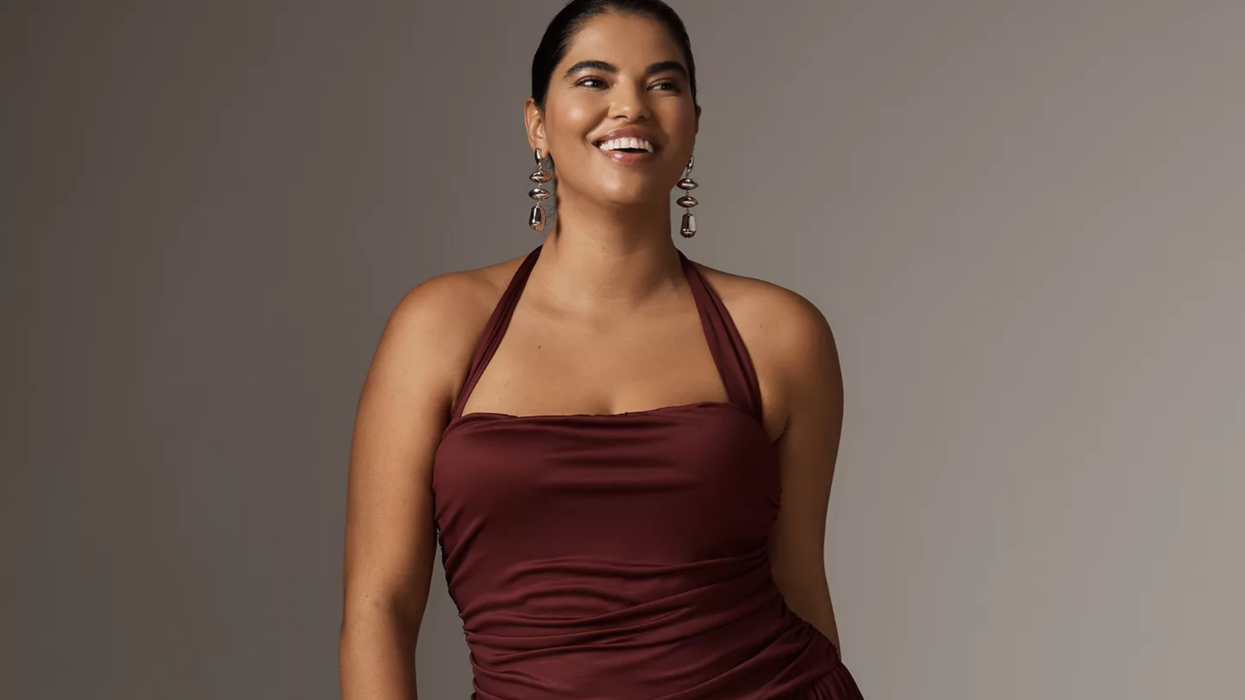Whelan’s ode to Oxonians.
How This Actress Went from Narrating Audiobooks to Writing Your Next Great Read
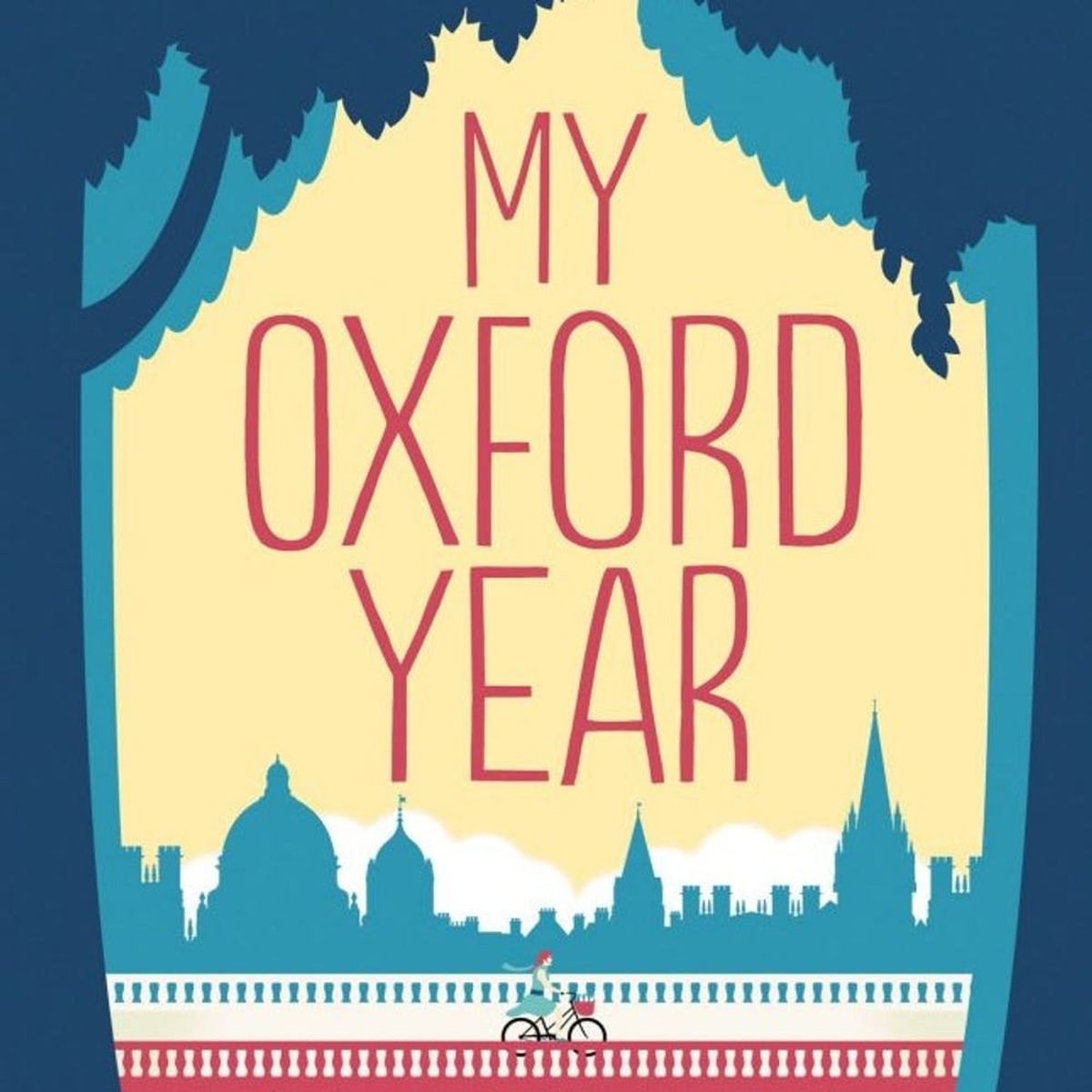
If you’re a plugged-in bibliophile, odds are you’re already familiar with the soothing voice of Julia Whelan, an acclaimed audiobook narrator who’s lent her voice to the crème de la crème of literature — from Gillian Flynn’s Gone Girl to Heather O’Neill’s The Lonely Hearts Hotel. Recently, Whelan decided to pursue another literary passion, breathing new life into an original screenplay by Allison Burnett to create a brand-new novelization of My Oxford Year.
The story follows a year in the life of Ella Durran, a 24-year-old student who has won a prestigious Rhodes Scholarship to attend Oxford for a semester. After recovering from rocky welcome to the city, Ella attempts to balance her demanding studies, her freelance gig back home, and a thrilling (albeit complicated) romance with her English Literature professor. With an exciting film adaptation of the story already in the works with Temple Hill, this is one book that you’re not going to want to put down — trust me, I have the all-nighter eye bags to prove it. We recently got the chance to sit down with Whelan and chat with her about her exciting new literary endeavor, dish about the juicy literary romance taking over book clubs across the country, and get the inside scoop about the upcoming buzzy film.
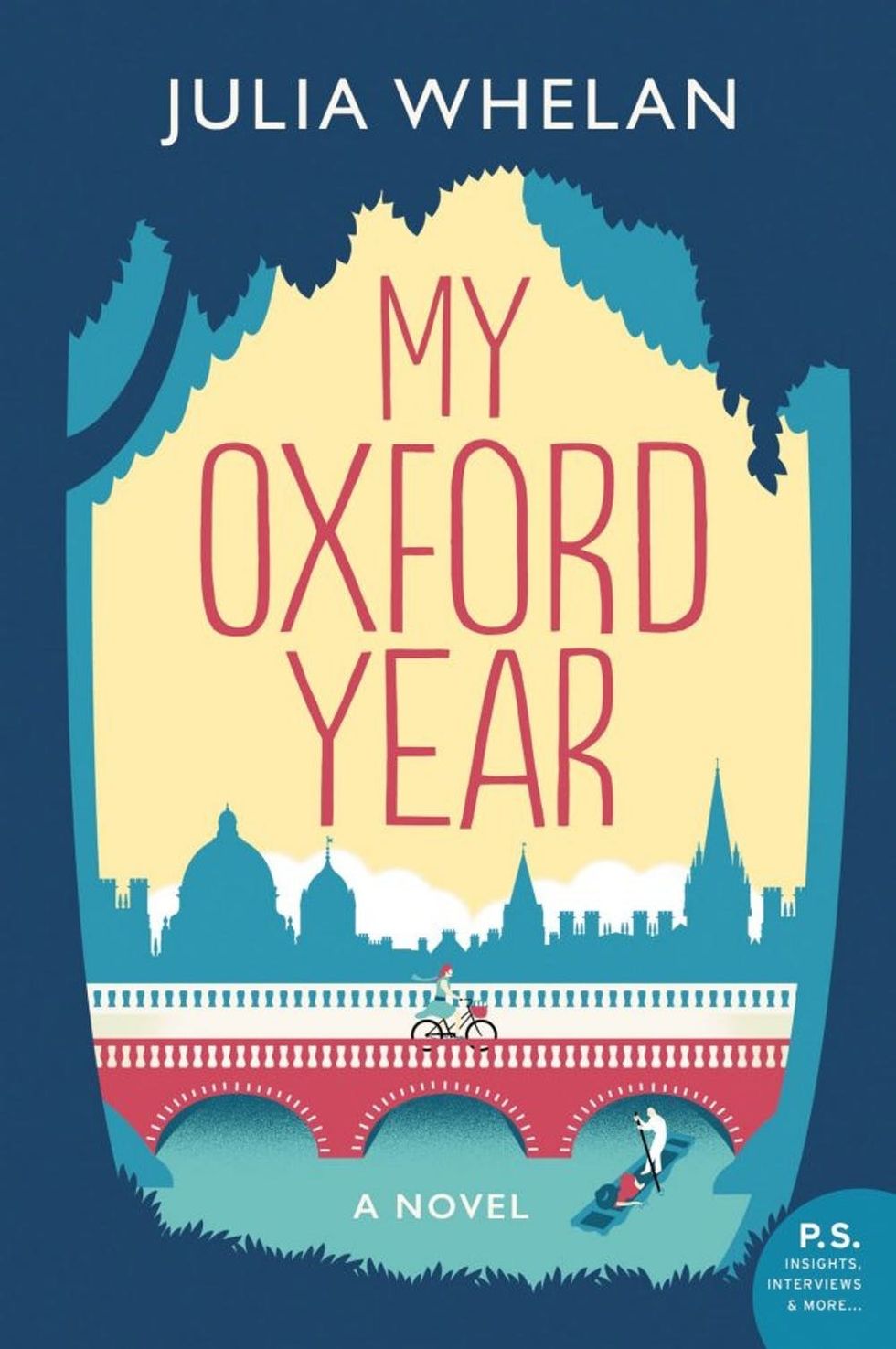
Brit + Co: You’ve spent a large majority of your career as an award-winning narrator for audiobooks, lending your voice to phenomenal books like Gone Girl, The Great Alone, and Educated. How did you get into the narration business?
JuIia Whelan: I’ve been so lucky in the books that I’ve been given to narrate. I’ve learned so much from those authors and titles. I got started through a college friend’s mother, who is an accomplished audiobook director and producer. She knew my acting background and the fact that I was a Creative Writing major, and she thought I might be suited to this career. She suggested that I send her a demo, I did, and the rest is history. I’d never even listened to an audiobook before. That was about eight years and 350 books ago.
B+C: The novelization of My Oxford Year is based on an original screenplay by Allison Burnett. What was it like getting the call to transform this screenplay into a full-length novel?
JW: Well, a friend and I had been hired to work on a reworked version of the original screenplay when it had been set up at a studio (a common process of film development), so I was already invested in the story and the characters. And everyone involved knew that I had, shall we say, strong opinions about what I thought the story could be. So, this is not a typical novelization in that it does not cleave to the screenplay. I wanted to tell my version of this story using the very different medium of a novel, to create something that would stand on its own. I took a shot. To my surprise, all the people involved were magnanimous enough to let me run with it and supported me 110 percent. This is not how these things usually go, let me tell you.
B+C: As a self-proclaimed bibliophile, I was totally blown away by your visceral description of Oxford. (I may or may not have looked up tickets to visit it IRL after an all-night reading binge.) Did you go back and visit your alma mater to get inspiration for the book? What other kinds of research did you do for My Oxford Year?
JW: BOOK THAT TICKET!! Seriously, go! Go now! Why are you still here?? It’s the perfect city, the perfect size for visiting, the perfect distance from London, the perfect everything. I think I ended up describing it more lovingly than I described Jamie. And I wish I’d been able to go back while I was writing, wish I’d had that kind of leisure of time and finances, but does any author write a book under her dream conditions? I had to rely on my memories, listening to the music I listened to while I was there, reading the poetry and novels I read while I was there, looking at old photos. From an acting perspective, we’d say I had a very Method approach. Oh, and Google Earth. There was a lot of Google-Earthing. I was fortunate enough to visit for a couple of days before I turned in the final draft and found some things in town, in the colleges, that had changed, so I had a few minor revisions to do. But Oxford is not what required research. That city is in my bones. The majority of my research centered around the medical circumstances in the book, the political storyline, and the academic structure of both Ella’s course of study and Jamie’s position. I was there as an undergrad, so I relied heavily on friends and some obliging faculty members to make sure I got the graduate studies minutiae right. I’m obnoxiously fanatical about research. I felt like anything less would be letting Oxford down, weirdly.
B+C: One of the main reasons that the protagonist ends up at Oxford is because Ella read a Seventeen Magazine article during a traumatic time in her teens about a columnist’s once-in-a-lifetime experience at Oxford. In the heat of this heartbreak, she sets a goal to one day attend Oxford, eventually earning the prestigious Rhodes Scholarship (obviously there’s several twists and turns during her experience). Did you ever have a Seventeen Magazine-like fantasy like Ella’s?
JW: Yeah. I read The True Confessions of Charlotte Doyle by Avi at 12, and it changed my life. It was genuinely inspirational and made me believe the impossible was possible if I worked hard enough. So I decided to do whatever it took to try to make my dreams come true. One of those dreams was acting, and one of those dreams was writing books someday.
B+C: Talk us through the character of Eleanor Durran. Did you write any of yourself in the character?
JW: To me, Ella is the kind of person everyone wants for a best friend. She’s fiercely driven, deeply intelligent, witty, and wildly idealistic but also pragmatic, a problem-solver. She can have a fun night out but show up as promised the next day, showered, five minutes early, your favorite coffee in hand. At a superficial glance, she has her s**t completely together. But if you were her friend, you’d also find yourself saying to her, repeatedly: Dude, chill. Shut up and smell this rose, would ya? Are there some similarities to me in there? Sure. Especially me at 24. In truth, when writing characters, it’s hard not to find pieces of yourself broken off in them. How all those pieces get put together is what makes it interesting. She’s a part of me, yes, but she’s not me. This is where acting comes in handy. We learn to reconfigure ourselves into another interpretation of life.
B+C: Without giving away too many spoilers, what was your favorite part of writing the relationship between Ella and Jamie?
JW: Personally, I like the intellectualism of their connection. I made a conscious decision early on to skip the parts of their relationship a reader would expect (all the “firsts,” if you will). The nerdery of their conversations is what I found fun, simply because I enjoyed having the characters fall for each other’s peculiar little minds first and foremost. I just had to trust that I wouldn’t be the only person in the world who would find it sexy. As Ella says, “There’s more to sex than sex,” and that’s this relationship in a nutshell. Over Thanksgiving, some of my friends — who hadn’t read the book yet — asked me to read a section out loud (so much for a holiday respite from the day job!) and after a few glasses of wine (okay, and some cognac), I read the tutorial chapter. At the end, there was silence and then one of them said, “I feel like I just watched two people have word sex,” and I was like, great, yes, perfect, thank you. Mission accomplished!
B+C: Okay, we’d love to dish about the upcoming movie adaptation of My Oxford Year. The rumor mill is abuzz with potential castings and production dates. What details can you reveal about the exciting new movie? How involved in the film production are you?
JW: I know slightly more than nothing. Seriously, I wish I had some good dish. I know someone else is hard at work on another version of the screenplay under the guidance of Temple Hill and director Gordon Anderson, and they’re hoping to start shooting in the fall, but here’s the thing: I’ve been an actor for 25 years, and I’ve learned to not believe anything is really happening until I’m on set and I hear “action.” I’d be remiss if I didn’t preach caution, especially where casting is concerned. There are too many variables outside of everyone’s control.
B+C: As we’re talking, your very first publication date is just around the corner. As a long-time lover of literature, how excited are you to be able to pick up a physical copy of your book in a bookstore?!
JW: SO excited. CRAZY excited. EXCITED excited. What I really want is to see someone reading it in the wild, on the subway, or a plane, which is not so easy to do in the era of coverless e-readers. So if you sense someone creepily looming over your shoulder while you’re reading your Kindle or whatever, it’s probably me.
B+C: Finally (we have to ask!), do you think that there’s room for a sequel to My Oxford Year? Are there any other projects in the works that you’re excited about?
JW: Look, never say never, right? Five years ago, while starting to work on the screenplay, the thought that there would have been a novel, an actual novel, was unthinkable, so I’ll never rule anything out. But, at present, I can comfortably say that, to me, the story is complete. I have a few other books in me that are aching to get out. For now let say that, where Ella and Jamie are concerned, I left it all on the page.
Have you bought your copy of My Oxford Year yet? Tweet us what’s next on your to-read pile @BritandCo.
Brit + Co may at times use affiliate links to promote products sold by others, but always offers genuine editorial recommendations.





